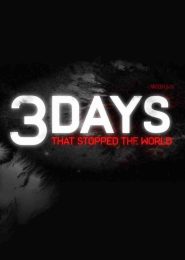The Drugging of Our Children (2005)
In the documentary, The Drugging of Our Children, acclaimed public health advocate and filmmaker Gary Null shines a spotlight on a deeply concerning issue: the widespread prescription of psychotropic drugs to children. Released in 2005, this investigative film delves into the alarming practice of medicating children, including preschoolers as young as 2 to 4 years old, who have been diagnosed with Attention Deficit Disorder (ADD) or Attention Deficit Hyperactivity Disorder (ADHD).
The Diagnostic Dilemma
Without objective medical tests to definitively identify ADD or ADHD, doctors often rely on standardized assessments and input from teachers and guardians. Unfortunately, these assessments may not consider other potential factors, such as diet or environment. Consequently, children are frequently diagnosed with these conditions, even though no organic basis for either disease has been clinically proven.
The Prescription Predicament
Psychiatrists often prescribe psychotropic drugs to children without fully informing parents of the potential risks. These medications can have severe side effects, including insomnia, loss of appetite, headaches, psychotic symptoms, and, in extreme cases, potentially fatal adverse reactions, such as cardiac arrhythmia. Despite these dangers, some school systems collaborate with government agencies to pressure parents into medicating their children. Refusal to comply may result in the threat of having their children removed from their homes.
The Unseen Consequences
The Drugging of Our Children raises critical questions about the ethics of drugging young minds. How do we balance the need for effective treatment with the potential harm caused by psychotropic medications? Are we prioritizing profit over the well-being of our children? The film underscores the urgency of addressing these issues.
Advocacy and Awareness
Gary Null’s documentary serves as a wake-up call. It urges viewers to demand transparency, informed decision-making, and holistic approaches to children’s health. As we navigate a landscape where pharmaceutical interests intersect with vulnerable lives, let us recognize that behind every prescription lies a complex web of motives. We must advocate for a system that prioritizes genuine well-being over convenience and profit.
In summary, The Drugging of Our Children compels us to question the status quo, protect our children, and ensure that their future is not compromised by hasty decisions and hidden agendas.




